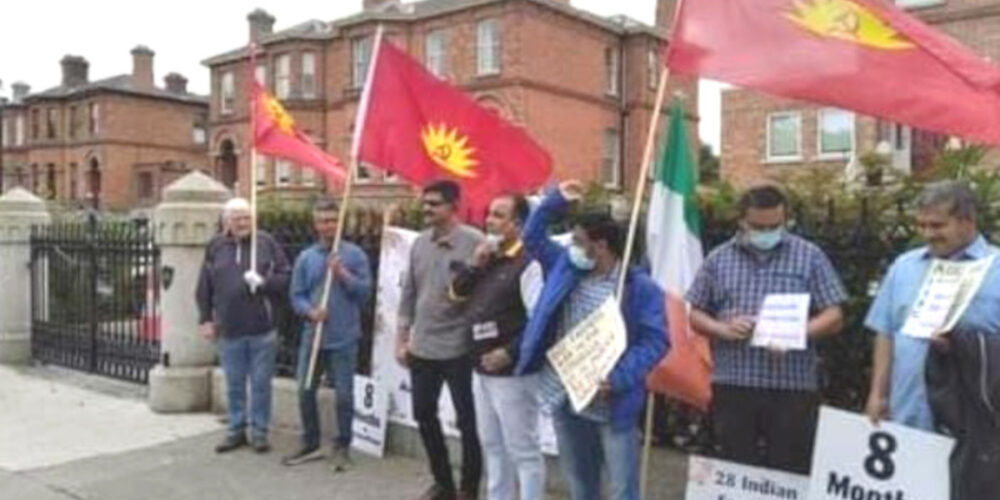Three hundred days have passed and 601 lives have been martyred in the farmers’ struggle in India. The struggle continues, and so does government apathy.
Three laws were forced in an undemocratic way on the farmers, without discussion or consultation with trade unions or debate in the parliament:
- the Farm Produce Trade and Commerce Act,
- the Farmers’ Agreement on Price Assurance and Farm Services Act, and
- the Essential Commodities Act.
In lay terms, these laws place the farmers at the mercy of the corporations. The logic seems to be that “the farmers will sow, the corporations will reap.”
The laws provide no guarantee of the minimum support price to farmers, who cannot avail of legal remedy by approaching the courts in case of disputes. On top of that, the Electricity Bill that has been passed also cuts the subsidy for electricity, which will increase the cost of production.
The whole idea is to make farming an unprofitable profession, then evict them and hand over the land to corporate farming, which is similar to the enclosure movement that took place in England in the eighteenth century.
Why does an elected government harm its own people, who voted them to power? What is the theoretical base for these political moves by the government?
The answer to these questions lies in 21st-century imperialism. Utsa Patnaik and Prabhat Patnaik describe the features of imperialism in their book A Theory of Imperialism (New York: Columbia University Press, 2017). Geographically, essential commodities cannot all be produced in developed countries, which are mostly in the temperate regions. So, firstly, the supply for the increasing demand for tropical produce has to be maintained without price inflation.
Secondly, there should be a control on land mass in tropical regions (which is limited) of developing countries, such as India, to supply those essential commodities without any hindrance.
Thirdly, the income of people in the poorer countries should be deflated so as to reduce local demand to keep the prices under control and freely available for the global north. This can be seen in history, as when United Fruit Company exported to the United States by exploiting the people of Guatemala; and when the president, Jacobo Árbenz, made land reforms by expropriating excess unused land (200,000 acres) he was exiled in a CIA conspiracy in 1954.
This move by the Indian government is the expropriation of land from the poor farmer and its transfer to the big corporations so that they can produce what is profitable, rather than what is essential for the local population. This is a threat to food security. India is already 94th (out of 107 countries) in the world hunger index, while a quarter of the world’s hungry people live in India. Malnutrition could also become a threat if these laws are implemented.
The neoliberal policies that were implemented in the 1990s caused immeasurable trouble and have pushed 300,000 farmers to suicide.
Left forces are in the forefront of these struggles against neoliberal policies, which includes the fight against privatisation. That is the reason that Communist Party offices and members are attacked and statues of leaders of the left are desecrated by the lumpen elements in the ruling Indian People’s Party (BJP).
An all-India strike was called for on 27 September by the farmers’ confederation (Samyuktha Kissan Morcha) for the repeal of these draconian laws. The Communist Party of Ireland extended its solidarity for the success of the all-India strike.






